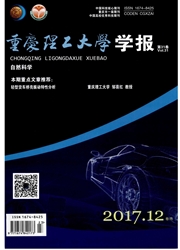

 中文摘要:
中文摘要:
《老子》以“道”为核心概念,运用“反者,道之动”的辩证思维,主张“道法自然”的治理模式,强调“无为则无不为”、“无为而治”的方法论,以“圣人无常心,以百姓心为心”的民治思想基础达到“我无为而民自化”的治理境界,最终实现“小国寡民”的理想社会状态。《老子》主张从解构的角度审视权力和政治的功用与同时代其他各家思想的治理向度迥然不同,不仅促成了古代中国社会“治世”的出现,对当下中国正在进行的有限政府构建和深化改革也提供了有益的启示。
 英文摘要:
英文摘要:
“Tao”is the core concept of The Tao Te Ching,which uses the dialectical thinking of“the movement of the Tao by contraries proceeds”,advocating the governance mode of“the law of the Tao is its being what it is”and to achieve good governance by“Inaction”theory.It looks at power and the political function from the perspective of deconstruction,which is totally different to the contemporary thoughts of other schools.Not only did it contribute to the appearance of “good governance”in ancient China society,but also provided a useful inspiration to Chinese reform and the construction of limited government.
 同期刊论文项目
同期刊论文项目
 同项目期刊论文
同项目期刊论文
 期刊信息
期刊信息
